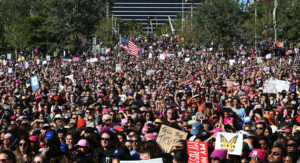In general, dullards think in binaries; trained experts will be far more interested in contextual variables.
It made good congressional theater to nail three Ivy League college presidents on a question of how they would manage verbal threats against Jews. The standard response now is that they prevaricated when they should have been unequivocal. Asked during the hearing whether suggesting the genocide of Jews was against their policies prohibiting harassment, Harvard’s Claudine Gay replied, “It can be, depending on the context.” But as she later noted, she should have returned to her “guiding truth, which is that calls for violence against our Jewish community — threats to our Jewish students — have no place at Harvard and will never go unchallenged.”
 Gay missed the opportunity to make a clearer definitive statement against racism. But the presidents were not wrong to explicitly suggest the need for defining the contexts in which threats against others are spoken. There is a long tradition in the United States to treat overheated rhetoric against another group as unfortunate but mostly tolerated. We tolerate blather but not violent behavior. Courts in the country have rarely agreed on what constitutes “fighting words,” and whether they are legally actionable. In each case that has come before a federal court context mattered.
Gay missed the opportunity to make a clearer definitive statement against racism. But the presidents were not wrong to explicitly suggest the need for defining the contexts in which threats against others are spoken. There is a long tradition in the United States to treat overheated rhetoric against another group as unfortunate but mostly tolerated. We tolerate blather but not violent behavior. Courts in the country have rarely agreed on what constitutes “fighting words,” and whether they are legally actionable. In each case that has come before a federal court context mattered.
Peer societies like France have more stringent norms against “inciting hatred” that would have muzzled rhetorical provocateurs like Donald Trump years ago. His constant efforts to incite violence against reporters, election officials and politicians opposing him would have crossed the line. But Americans have tolerated Trump’s rhetoric because many view his taunts as the mostly harmless ravings of a man-child. In some ways his abusive rhetoric is treated with the same kind of indifference American legislators have shown toward gun laws.
The three Ivy League presidents put on the hot seat by a New York Congresswoman were doing what academics are trained to do by trying to deconstruct a broad and panoramic question by considering contextual variables. For example, it is a credit to our culture and campuses that we usually do not send in goon squads to arrest a fiery orator. On my own campus I’ve seen visiting Christian evangelists single out and taunt a single Muslim woman in a hijab, with no interruption from the authorities on site. Should the campus police have stopped the hurtful hurangues of the speakers? Maybe. But I’m glad they let the crowd react with suitable anger.
Context Matters.
The same process is replicated by any trained specialist that is ready to face the messy externals that make any bald claim inaccurate. For example, the description of a dreaded disease to a hapless patient should come with a whole range of scenarios based on the particulars of a person’s case and recent past. A weather prediction similarly comes with a backstory that includes the specific meteorological conditions that are shaping what may happen. And it is obvious that a good biography of a key figure will always include carefully researched details that makes some authors rethink their initial infatuation with their subject.
Too many members of Congress have perfected the “gotcha question.” But it is inconceivable that a scholar would not have an extended trail of qualifiers to amend a simple panoramic judgment. Their impulse would be to “unpack” the assumptions embedded in a question and wonder if there is a better formulation. Nitpicking? Not at all. Any query suggesting a blanket prohibition of speech needs to be carefully considered.
To be sure, we clearly like the theater of take-no-prisoners questions. That is how television’s Perry Mason kept us riveted for over a decade. But life is complex. Even moral assertions have their limits. If we bother to notice, behaviors are usually more nuanced than our utterances about them. And so, it should not surprise us that the three academics wanted to explain themselves as if they were in a seminar. To be sure, they clearly picked the wrong “universe of discourse” for the setting they were in. They paid the price of having their thoughts reduced to soundbites that made them look equivocal. But it is useful to remember that all of this unfolded in what has become an alien place: a tarnished institution that has abandoned honest curiosity for the low arts of deprecation and vituperation. It is clear that academics often have a higher standard of discourse that requires amendments, exceptions, genuine questions, and a willingness to hold two conflicting thoughts at the same time.
![]()
